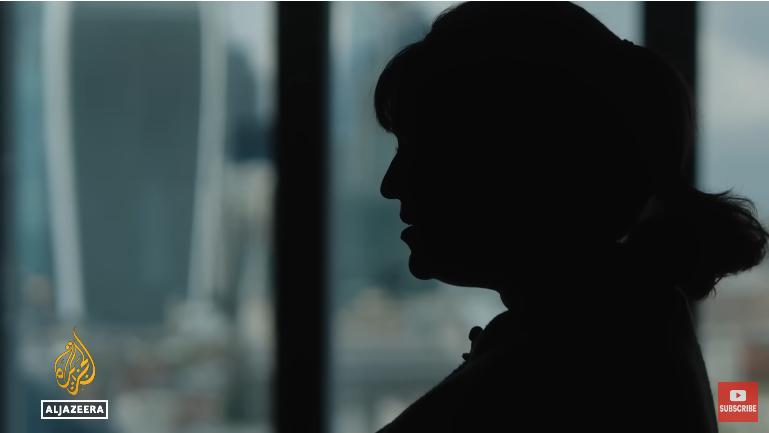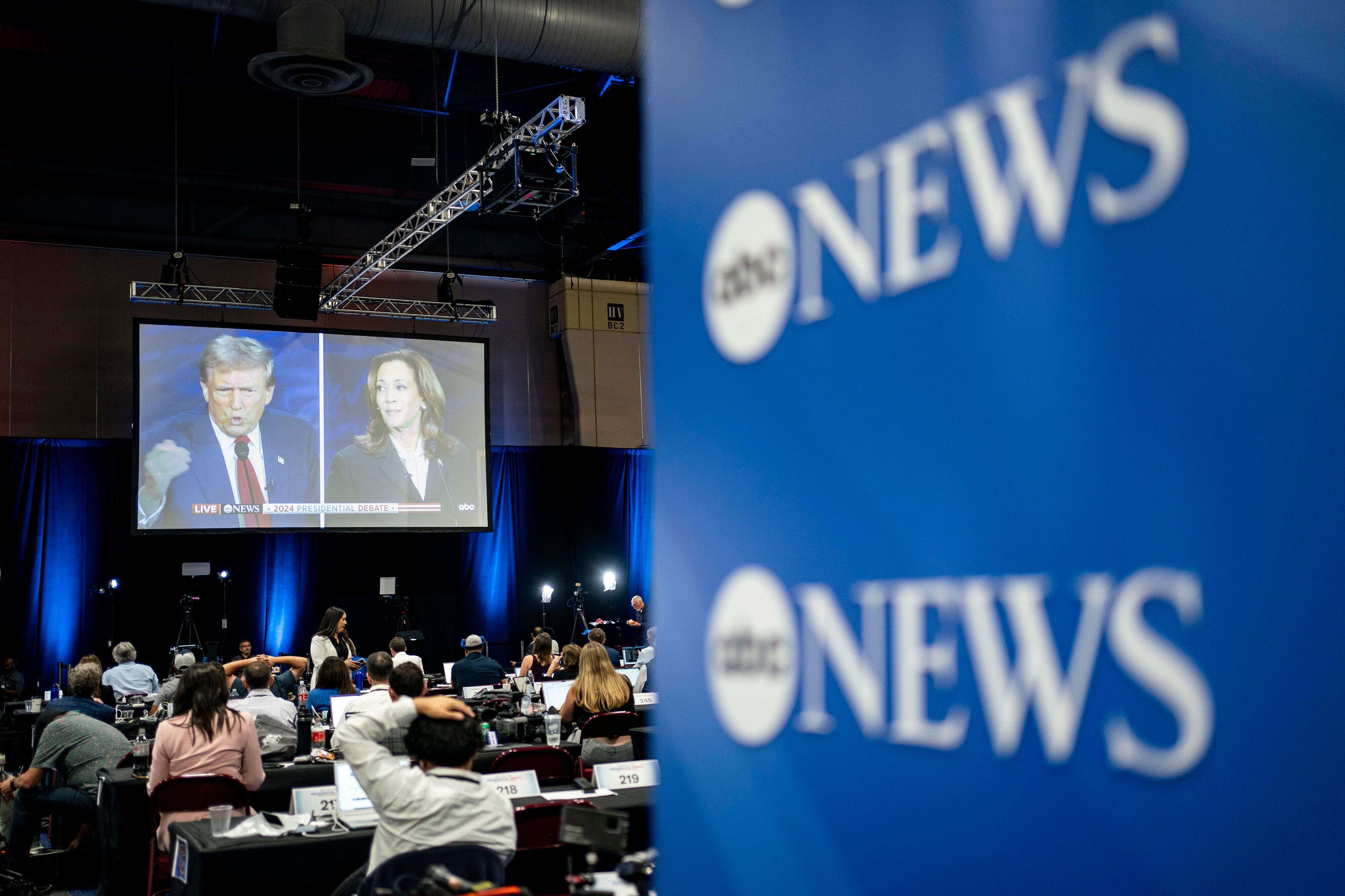In this article, we compile testimonies from journalists who have criticised their own media institutions as documented in reports, letters, or interviews. Most spoke anonymously out of fear of repercussions—because freedom of expression appears protected only until it reaches the borders of Israel. At that point, constraints emerge, editorial policies shift, and the system of double standards is activated.
In the aftermath of the October 7 attack, Al Jazeera Journalism Review documented numerous professional and ethical violations by Western media institutions in their coverage of the war on Gaza.
The purpose of this documentation was to expose the contradictions of newsrooms that present themselves as professional beacons, leveraging their credibility to justify Israeli war crimes and provide cover for them. A case in point was The New York Times publishing claims on October 7 alleging that Hamas fighters raped women—claims made without any objective evidence.
This overwhelmingly pro-Israel coverage was not only questioned by global public opinion but also challenged from within—by journalists working in influential newsrooms who found themselves constrained by editorial policies that prioritised Israel over the core ethics of journalism.
This article gathers the testimonies of journalists who have criticised their institutions in reports, interviews, or internal letters. Most spoke under the condition of anonymity out of fear of retaliation. Freedom of expression, it seems, is protected—until it touches the topic of Israel, at which point constraints surface, editorial policies shift, and double standards kick in.
Journalism's highest values have always been rooted in humanity without discrimination. These testimonies, however, expose serious violations inside Western institutions that claim to defend the public interest and seek the truth.
They reveal the discriminatory treatment by newsroom leaders toward the Palestinian issue—and we have chosen to present them unedited.
I literally cried in the bathroom so many times because of the uphill battle of trying to get things reported.
Journalist at The Times
“It’s a continuous battle to report the truth. We would see the raw footage being sent to us from Gaza – we’re all well aware of the carnage. Yet you can’t describe what your eyes are seeing.”
“I remember when [Israel’s then defence minister] Yoav Gallant announced the ‘complete siege’ immediately after October 7. It was a blockade on top of an already crippling blockade. It was a violation of international law that was going to have catastrophic consequences, and yet this wasn’t allowed to be conveyed in the coverage.”
"Myself and other colleagues found ourselves frequently frustrated at how nothing could be reported unless there was a response or confirmation from the Israeli army. We know who’s doing the killing, we know who’s responsible, so why must we wait for Israel to confirm or deny before we attribute? We never wait for the Russians; we take Ukrainian claims at face value as the victims. Why is this any different?”
“Nor was any version Israel provided ever challenged. It was taken as fact, always. I remember challenging senior members of staff, reminding them that Israel repeatedly lies and has a history of doing so. But it was pointless and fell on deaf ears.”
"The Israeli narrative always reigned supreme and instructed the coverage at Sky News, no matter how inaccurate."
To adopt a stance other than Israel having the right to defend itself, to push back against the skewed coverage would earn you the label of being difficult or rigid
Journalist at Sky News
The use of the word 'genocide' is effectively banned, and any contributor who uses this word is immediately shut down.
Journalist at BBC
Even when Gaza was covered, it was driven by ‘clicks,’ not ethical clarity. Tragic footage is often met with comments like, ‘That’s really good footage,’ or remarks about how much traffic it will generate, as if it’s not real lives being impacted.”
Journalist at ITN
It’s a continuous battle to report the truth from Gaza.
If we had an interview with the Palestinian ambassador that comprehensively conveyed the Palestinian side, or a presenter challenged an IDF spokesperson, or even a news report that humanised Palestinians and explicitly named Israel as the perpetrator, there’d be an avalanche of phone calls and complaints promptly
Sky News frequently treated Palestinian guests with hostility, including muting them. For Israeli guests, that was a line that could not be crossed.
We know who’s doing the killing... Why must we wait for Israel to confirm or deny before we attribute? We never wait for the Russians.
Any position critical of Israel’s ‘right to self-defense’ branded you as rigid or extreme.
If we humanized Palestinians or directly named Israel as perpetrator, complaints flooded in.
Journalist at Sky News
There was a deliberate focus on Israelis who lost their lives, with reporters naming them and creating sympathetic narratives, but there was no such treatment for Palestinians.
Former journalists at BBC
Despite the disproportionality in the conflict, editors insisted on ‘balancing’ every Palestinian story with an Israeli one. It was an admission that the suffering of Palestinians did not deserve standalone reporting.
During the siege of Al-Shifa hospital in November 2023, I told a colleague: ‘I can’t believe the Israeli army is allowed to do this.’ He replied: ‘I can’t believe Hamas uses kids as human shields.’ I was speechless.
These are not isolated biases—the institutional slant runs deep.
In a 2021 impartiality training, the situation in Israel-Palestine was called ‘complicated,’ with no acknowledgment of the power imbalance.
BBC journalist who resigned in 2023
The BBC has failed to accurately tell this story… It has therefore failed to help the public engage with and understand the human rights abuses unfolding in Gaza.
Letter from BBC journalists to Al Jazeera
Terms like 'massacre' and 'atrocity' were reserved only for Hamas, presenting it as the sole instigator of violence. This is inaccurate but consistent with the BBC’s overall framing.
We demand that the BBC reflect the evidence-based findings of neutral humanitarian organizations.
Claims that it was difficult to access Gaza are not convincing. You can follow individual stories, monitor social content, or use remote interviews.
In recent weeks, as civilian deaths surged and Western tolerance of Israeli attacks waned, BBC efforts to humanize Palestinians increased. But for many, it was too little, too late.
This institution does not represent us. For many people of color, it is clear that some civilian lives are valued more than others. That is painful.
Some senior BBC staff seem to empathize more with Ukrainian civilians than Palestinian ones.
I felt sickened by the mass killing of civilians during the Hamas attacks, but also feared my employer would fail to investigate Israel’s response or contextualize decades of occupation. My fears were immediately confirmed.
“BBC held trauma listening sessions, but for many of us, especially journalists of color, the BBC was part of our trauma.”
Letter from BBC journalists to Al Jazeera
Because self-expression is the status quo, sometimes the most effective protest by artists is refusal.
I cannot write poetry amidst the ‘reasonable’ tones of those trying to normalize this unreasonable suffering. No more ghoulish euphemisms. No more verbally sanitized hellscapes. No more warmongering lies.
If this resignation leaves a hole in the news the size of poetry, then that is the true shape of the present.
Anne Boyer, on her resignation as poetry editor at The New York Times
I have been informed that I am being replaced as Editor-in-Chief of @eLife for retweeting a The Onion piece that calls out indifference to the lives of Palestinian civilians.
Michael Eisen, in a post on X
France, which has long claimed to be a beacon of free speech and human rights, is now enabling the atrocities committed by the Israeli entity... They began harassing me a year ago. The Simone Veil Prize that was awarded to me in the name of free speech was revoked because I exercised that freedom in speaking about the trauma I feel when Palestinian humanity is stripped away.
Zineb El Rhazoui, in an interview with Al Jazeera
Jeremy Bowen, the BBC's international editor, has publicly criticised the Israeli government for restricting journalists' access to the Gaza Strip. He asserted that this limitation is intended to prevent the media from witnessing and reporting events unfolding in Gaza. Speaking at the Society of Editors conference, where he received a special fellowship award, Bowen remarked:
Why don't they let us in... Because there's stuff there they don't want us to see.
He highlighted that, over the past 18 months, he was granted only half a day with the Israeli army within Gaza, suggesting an attempt:
... to obfuscate what's going on, and to inject this notion of doubt into information that comes out.




![A woman and a child wait for a call to cross the passport control after arriving in a train from Kyiv at the Przemysl main train station on February 27, 2022 in Przemysl, Poland. [Omar Marques/Getty Images]](/sites/default/files/ajr/2022/ResizeGettyImages-1373177290.jpg)
















































